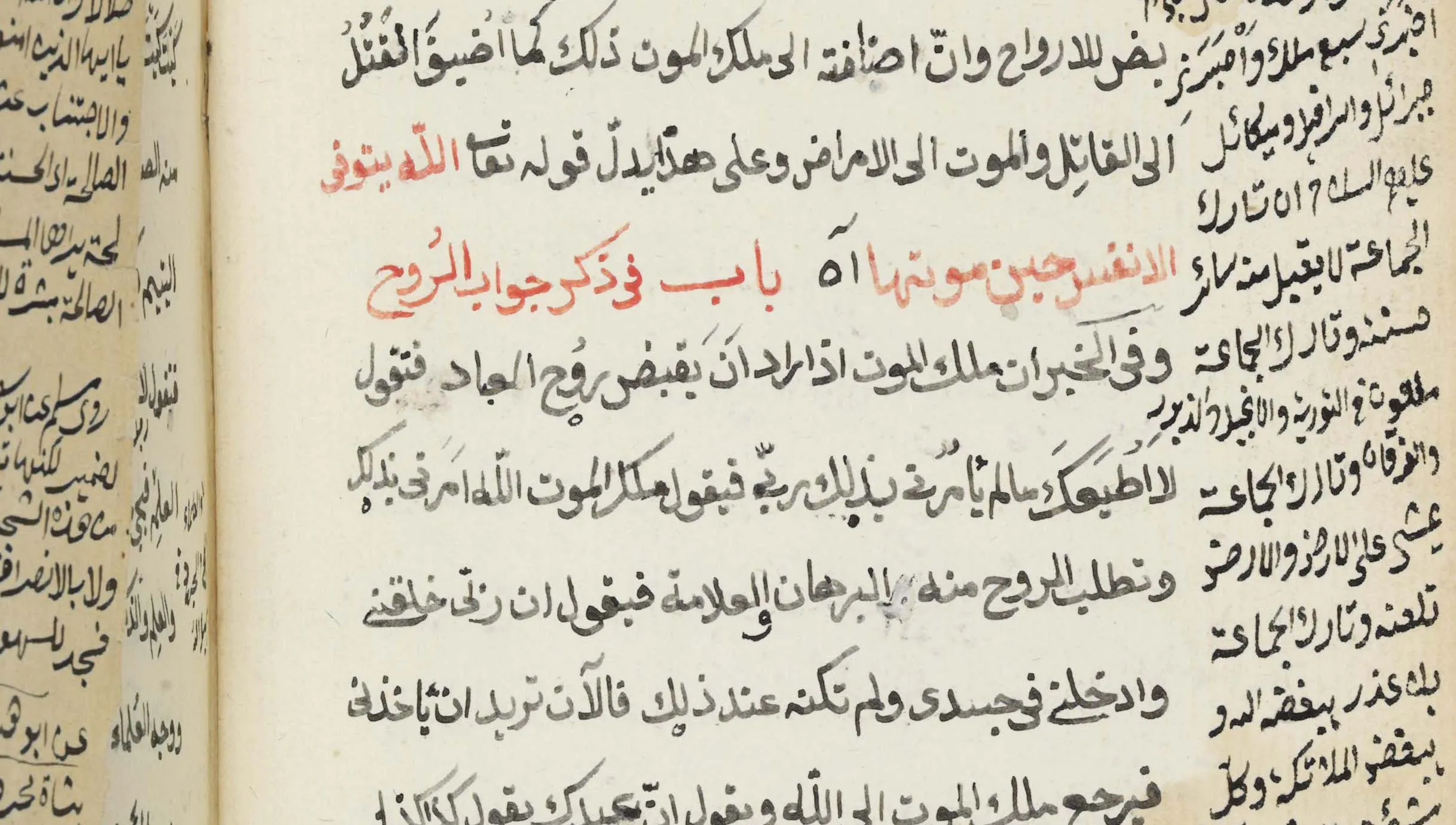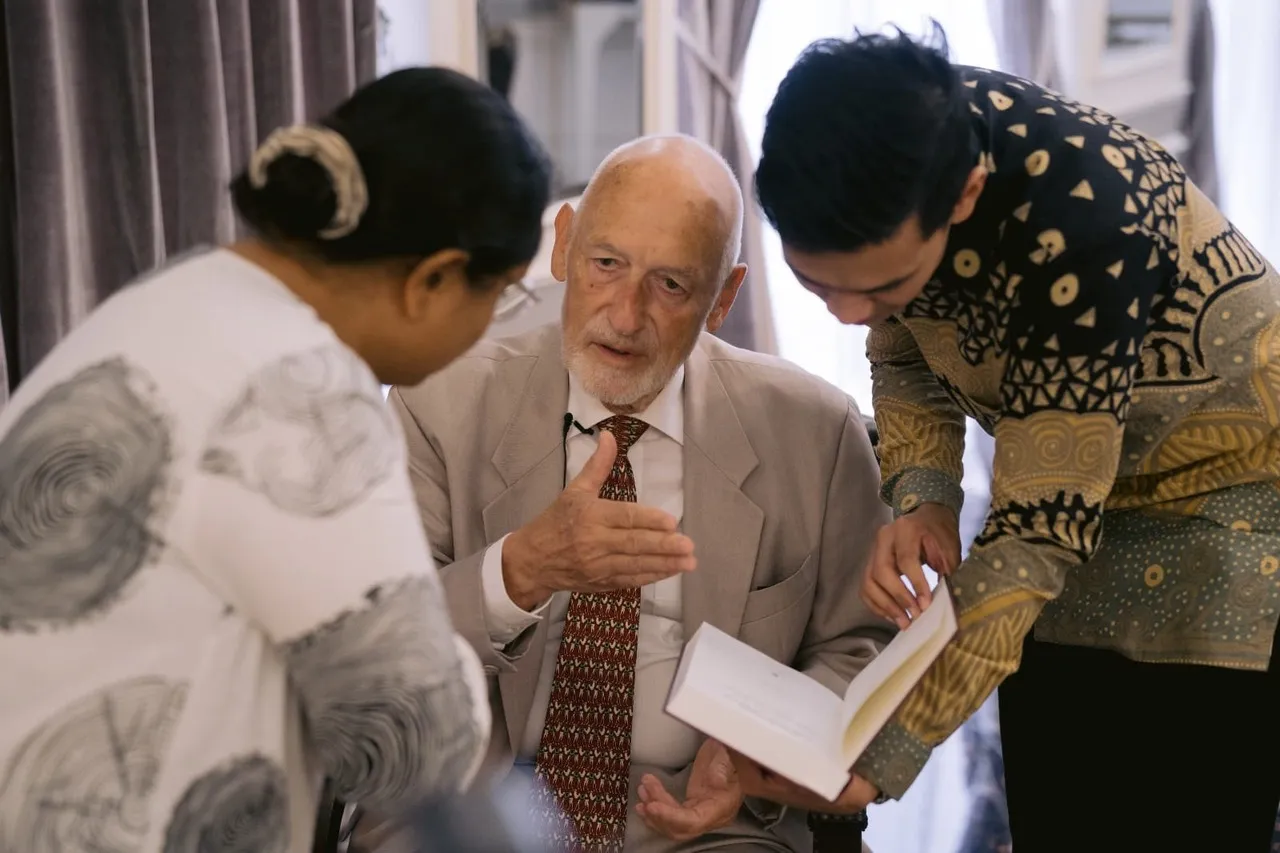
About the ‘Daiber Collection’ Beta Version Database

Professor Hans Daiber teaching at CASIS Kuala Lumpur, July 2023
The ‘Daiber Collection’ represents the largest collection of Arabic-script manuscripts in East Asia and is housed at the Institute for Advanced Studies on Asia (formerly Institute of Oriental Culture), The University of Tokyo. The collection comprises manuscripts gathered by Professor Hans Daiber (1942–2024), a scholar specialising in Islamic philosophy, theology and codicology, who taught at institutions such as Goethe University Frankfurt and Free University Amsterdam. The Institute for Advanced Studies on Asia acquired his collection in two phases during the 1986–87 and 1994 academic years.
Currently, the ‘Daiber Collection’ consists of Collection I (367 codices) and Collection II (153 codices), encompassing a wide range of subjects, including Qur'anic studies, Hadith studies, jurisprudence, theology, mysticism and eschatology. The manuscripts date from the 12th to the 20th century, with a notable concentration of works from the 18th century. Most of the manuscripts are in Arabic, with minor representations of Persian and Turkish. Among its treasures are the only known extant manuscript of al-ʿAqīqī’s (d. 890–91) genealogical treatise, entitled (or described) Fīhi tasmiyat man aʿqaba min wuld Amīr al-Muʾminīn Abī l-Ḥasan ʿAlī b. Abī Ṭālib in the manuscript, from the mid-12th century (MS Daiber I-127) and several authorial holographs.
Professor Daiber himself authored the catalogues for the collections, published by the Institute of Oriental Culture in 1988 (I) and 1996 (II) under the title Catalogue of the Arabic Manuscripts in the Daiber Collection (The Documentation Center for Asian Studies, Institute of Oriental Culture, The University of Tokyo). Based on the bibliographic information in these catalogues, ‘Daiber Collection Database: The Arabic Manuscripts in the Daiber Collection’ (https://ricasdb.ioc.u-tokyo.ac.jp/daiber/db_index.html) was launched in March 2006. While the database is founded on the catalogues’ bibliographic data, it incorporates modifications to the transcription format and includes several corrections to the original catalogue entries.
Over the past two decades, this database has been widely utilised by researchers in Middle Eastern and Islamic studies. However, it now faces considerable limitations in meeting contemporary academic and technological standards. These include proprietary metadata standards relying solely on text strings, a lack of image-specific metadata, and low-resolution binary images for Collection II. Additionally, many manuscripts in the collection are multi-text or composite volumes, necessitating a more sophisticated infrastructure for advanced research in codicology and bibliography.
In 2024, the Uehiro Project for the Asian Research Library (U-PARL), initiated a project to rebuild this database. Entering its third phase in 2024, U-PARL has been advancing the digitalisation and dissemination of academic resources within the university and enhancing the management and accessibility of research resources to strengthen the role of the Asian Research Library as a research hub.
U-PARL adopts the concept of a ‘collaboratively developed archive’ in its digital archive initiatives, emphasising cooperative efforts that transcend the roles of provider and user. Guided by this principle, the Daiber Collection Database Reconstruction Project is spearheaded by a collaborative community comprising the Institute for Advanced Studies on Asia (the collection’s holder), U-PARL (responsible for operational infrastructure and access facilitation) and a team of research engineers from the Graduate School of Humanities and Sociology, The University of Tokyo.
The beta version database is designed to evolve as a ‘collaboratively developed archive’, integrating diverse perspectives and feedback to continuously refine and update its interoperable metadata standards and transcription methods. This platform seeks to address common challenges faced by traditional digital archives – such as stakeholder fragmentation and the difficulty of making updates after completion – by fostering active user participation to enhance its overall value.
As part of the reconstruction project, this beta database will be integrated into the ‘Asian Research Library Digital Collections’ on the University of Tokyo Digital Archives Portal, linking it to external portal sites. This initiative seeks to provide a new foundation for Arabic-script manuscript studies while embodying U-PARL’s mission as a model for managing and disseminating research resources, ultimately contributing to academic research.
The ‘Daiber Collection Reconstruction Project’ has been conducted by the following members, collectively known as ‘Team Daiber’:
- The Uehiro Project for the Asian Research Library (U-PARL)
- Erina Ota-Tsukada (Project Assistant Professor, in charge of West Asia)
- Daigo Isshiki (Project Associate Professor, Deputy Project Leader of U-PARL, URA)
- Hiroaki Sawa (Project Specialist, Metadata Design and Management)
- Graduate School of Humanities and Sociology, The University of Tokyo
- Ikki Ohmukai (Concurrent Associate Professor of U-PARL)
- Airu Adachi (Doctoral Student, Beta Version Database Development)
- Institute for Advanced Studies on Asia, The University of Tokyo
- Kazuo Morimoto (Concurrent Professor of the Research Advancement Section for the Asian Research Library (RASARL))
The construction process of this database is open to everyone interested in the ‘Daiber Collection’ and the concept of ‘archive development’. We hope to shape this ‘collaboratively developed archive’ project together with not only those engaged with Arabic-script manuscript materials but also many others who resonate with the potential of cooperative archives aimed at realising the vision of Society 5.0.
June 2025
Erina Ota-Tsukada
The Uehiro Project for the Asian Research Library (U-PARL)
At U-PARL, our fundamental approach to digital archive development is to ‘co-create’ archives through the involvement of diverse stakeholders. If you have any suggestions for metadata corrections, feedback on the beta version database or other observations, please let us know by filling out this form with the subject line ‘Regarding the Daiber Collection’. https://u-parl.lib.u-tokyo.ac.jp/ja/contact